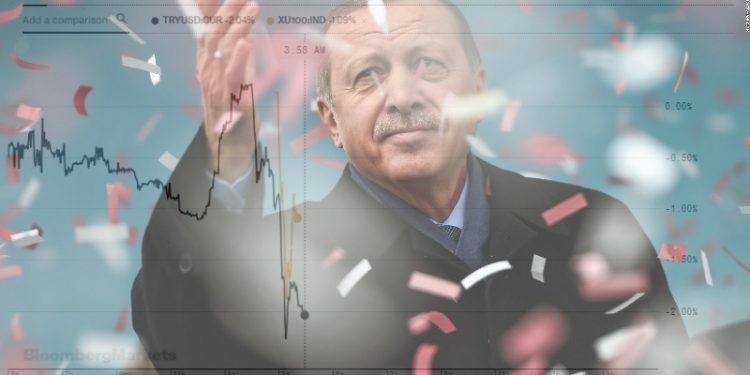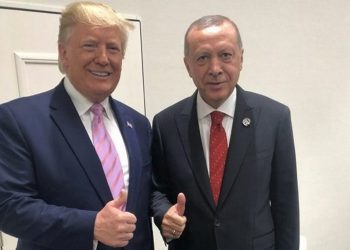Greece’s sanding in world and especialy in the East Mediteranian and Balkan region has been significantly upgraded due to a number of factors, but establishing of the new status quo hinges greatly upon answering of a difficult and out-of-bounds question: “how weak we need Erdogan to be”. The Greek government and the political system, as a whole, must come to a modus vivendi, in order to be able to draw a modus operandi and persuade its international partners that not only, Greece can play along, but has a firm standing and is ready to assume responsibility.
The political “mutilation” that the Turkish President has suffered in the recent municipal elections, seems to have opened the Pandora’s box for him, as well as a new era of uncertainty in the region. This uncertainty will take its toll on the dynamics of the evolving power balance, where lobbyists and secret services, as well as the Turkish President himself, have a say, instead of the great powers –as might have been expected.
Pressure upon the Turkish economy, currency depreciation, exclusion from international fora and censorship on the Press have created a political mixture that has weakened Tayip Erdogan, leaving him more dependent on the nationalists, altering his Party’s (AKP) character. This contributed to the major defeat in the mayoral elections in the large cities of Ankara, Istanbul and Izmir, as the former prime-minister (and Erdogan’s once close counsel) Ahmed Davutoglu has criticized.
Davutoglu, author of the “bible” of Turkish foreign policy “Strategic Depth” and advocate for Turkey’s role as a regional super-power, had kept relatively silent in the background, having withdrawn from politics three years ago, in the aftermath of a Russian military aircraft being shot down, which was blamed on Fetullah Gulen, although Davutoglu himself has never been named as his supporter. In view of President Erdogan’s ongoing pogrom within armed forces, the police, intelligence services and the diplomatic corps, until now no one could afford opposing him without consequences.
This, however, seems to have changed. The country’s economic vulnerability and Erdogan’s recent political “mutilation” make way for the expression of views such as the ones shared by Davutoglu. Arguably, the timing of his written intervention is no political “accident”, quite the contrary, as it marks vocally Erdogan’s weakening and starts the political process for the day after within the President’s party.
Although the development seems to have a positive effect on the internal political scene in Turkey, nurturing hopes of returning to more democratic practices, streamlining relations with the USA and the EU, as well as pointing to a chance for economic stability, it may prove potentially harmful to the strategical enhancement of Greece’s geopolitical and geo-economic status in the wider area of the Balkans and the Eastern Mediterranean.
Davutoglu’s resurfacing, however, also serves as a signal towards the USA, the EU and even Israel, with his every move from now on being under scrutiny and the object of debate. The way he chooses to place himself in the political scene, as well as Erdogan’s response and the communication channels between them will alter ongoing developments concerning the establishment of the new American geo-economic dogma in the Eastern Mediterranean and the Balkans and the response to enhanced Russian presence in the Black Sea.
If Tayip Erdogan feels threatened by Davutoglu and tries to silence him, this will only result in the latter claiming a de facto interlocutor status both on the international and the internal AKP level, emerging as a successor, which will deepen further the President’s fall. If, on the other hand, Erdogan allows for space and creates a balance towards reinstating Davutoglu various contexts, this could help break the international exclusion and establish new channels of communication.
The first scenario appears extremely favorable for current Greek interests, given that Erdogan’s focus on the internal political scene, the outbursts in the Aegean and his conflict with the USA, the EU and Israel will accelerate implementation of strategical planning on all levels, cementing Greece’s upgraded role in the region. In case, however, Erdogan and Davutoglou find a way to co-exist, the modus vivendi with the USA may be reinstated, putting a sharp stop to Greece’s interests.
Of course, all of the above are still just mere speculations, with several plausible versions and deviations, deriving from different authorities and power hubs on which Greece has little or no intervention margin. This presents an inherent risk as far as implementation of agreements is concerned. The status and weakness of both Erdogan and Turkish economy are the two main factors that will shape the developments in Turkey, while also defining, up to an extent, US and EU policy in the region.


































